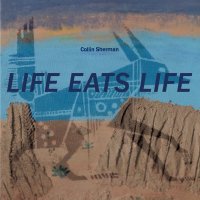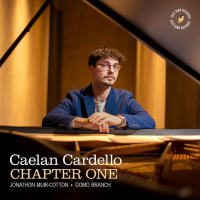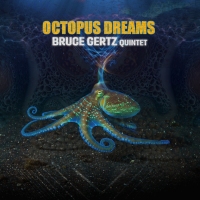Home » Jazz Articles » Extended Analysis » Billie Holiday: Billie Holiday: The Complete Commodore &...
Billie Holiday: Billie Holiday: The Complete Commodore & Decca Masters
Nina Simone
piano and vocals1933 - 2003
Holiday's career divides neatly into three decades: the '30s, when she was the ebullient voice in mostly small swing combos; the '40s, when she was a popular torch singer and the '50s, when her increasingly ravaged voice became almost a clichЁҰ of heartache and broken dreams. Today, she's most often remembered for those last and first decades, although this collection reminds us that she was not only at the pinnacle of her popular, but also her artistic, success in the middle decade. She was at once of and above the prevailing ethos of romance and sentiment that marked the decade's popular music. Working within the prevailing strictures of the pop of the time—voice out front, ensembles in the background; lush arrangements frequently employing strings; song lyrics stressing female frailty and vulnerability—Holiday, as much as Frank Sinatra in that same decade, created a template for legato ballad singing while refining her insouciant, lilting sense of swing. All the recordings here were produced and/or supervised by Milt Gabler, who owned the Commodore label and Manhattan record store, later becoming a top A&R man at Decca.
Gabler got to record Holiday on Commodore in 1939 because Columbia refused to record her "Strange Fruit," which, ironically, became her first real hit record. And this first record of the song about lynching, with haunting muted trumpet (
Frankie Newton
b.1906On the Decca recordings (late 1944-early 1950), we hear Holiday perfecting the art of seamless narrative phrasing and musical panache on ballads, but also hints of the deterioration of her voice (from booze, drugs and cigarettes) that make her sound so scarily vulnerable on her later '50s recordings of some of the same songs. But on these recordings the artistry is still a beacon illuminating the pity and pathos in such songs as "Lover Man," "Don't Explain," "Good Morning Heartache," "No Good Man" and the strangely exhilarating version of the gloom and doom "Deep Song," a lesser-known rarity worth seeking out.
While the ballads are the gems of the Decca years, Holiday also affectionately and convincingly revisited blues from Bessie Smith's book and did two sparkling duets with

Louis Armstrong
trumpet and vocals1901 - 1971
Track Listing
CD1: Strange Fruit; Yesterdays; Fine and Mellow; I Gotta Right to Sing the Blues; How Am I to Know; My Old Flame; I'll Get By; I Cover the Waterfront; I'll Be Seeing You; I'm Yours; Embraceable You; As Time Goes By; He's Funny That Way; Lover Come Back to Me; Billie's Blues; On the Sunny Side of the Street. CD2: Lover Man; No More; That Old Devil Called Love; Don't Explain; You Better Go Now; What Is This Thing Called Love; Good Morning Heartache; No Good Man; Big Stuff; Baby, I Don't Cry Over You; I'll Look Around; The Blues Are Brewin,' Guilty; Deep Song; There Is No Greater Love; Easy Living; Solitude; Weep No More; Girls Were Made to Take Care of Boys. CD3: I Loves You Porgy; My Man; Tain't Nobody's Business If I Do; Baby Get Lost; Keeps On A-Rainin'; Them There Eyes; Do Your Duty; Gimme A Pigfoot (And a Bottle of Beer; You Can't Lose A Broken Heart; My Sweet Hunk O'Trash; Now or Never; You're My Thrill; Crazy He Calls Me; Please Tell Me Now; Somebody's On My Mind; God Bless the Child; This Is Heaven to Me.
Personnel
Billie Holiday
vocalsBillie Holiday: vocals; Buck Clayton: trumpet; Tiny Grimes: guitar; Bobby Hackett: trumpet; Eddie Heywood: piano, arranger; Budd Johnson: tenor sax; Mundell Lowe: guitar; Specs Powell: drums; Tab Smith: alto sax; Lester Young: tenor sax; Eddie Barefield: clarinet and baritone sax; Billy Butterfield: trumpet; Cozy Cole: drums; Bob Haggart: bass, arranger; Horace Henderson: piano; Al Klink: alto sax; Carl Kress: guitar; Bernie Leighton: piano; Johnny Mince:alto sax; Sy Oliver: arranger; Frankie Newton: trumpet; George Wettling: drums; Bob Bain: guitar; Stan Webb: baritone sax; George Duvivier: bass; Louis Armstrong: vocals; Everett Barksdale: guitar; Tom Barney, Joe Benjamin: bass; Emmett Berry: trumpet; Denzil Best: drums; Larry Binyon: tenor sax; Wallace Bishop: drums; Johnny Blowers: Toots Camarata: guitar; Toots Camarata; arranger; Russ Case: trumpet; Big Sid Catlett: drums; Henderson Chambers: trombone; Doc Cheatham: trumpet; Kenny Clarke: drums; Shad Collins: trumpet; Sid Cooper: alto sax; Jimmy Crawford: drums; Lem Davis: alto sax; Vic Dickenson: trombone; Bob Dorsey: tenor sax; George Dorsey: alto sax; Eddie Dougherty: Nick Fatool: drums; Joe Guy: trumpet; Billy Kyle: piano; Jack Lesberg: bass; Kelly Martin: drums; George Matthews: trombone; Toots Mondello: alto sax; Sol Moore: baritone sax; Tony Mottola: guitar; Jimmy Nottingham: trumpet; Rudy Powell: alto sax; Bernie Privin: trumpet; Hymie Schertzer: alto sax; Jimmy Shirley: guitar; Bill Stegmeyer: clarinet, alto sax; Bobby Tucker: piano; Dick Vance: trumpet; Teddy Walters: guitar; Dicky Wells: trombone; Sonny White: piano; John Williams: bass; Shadow Wilson: drums; Milt Yaner: clarinet, alto sax; Paul Ricci, Kenneth Hollon: tenor sax; Sammy Benskin: piano; Tony Faso: trumpet; John Fulton: clarinet, flute: tenor sax; Bernard Kaufman: tenor sax; Charlie LaVere: piano; Joe Springer: piano; George Stevenson: trombone; Gordon Jenkins & His Orchestra (Strings); Billy Taylor: Jr.: bass; Daniel Perry: guitar; Rostelle Reese: trumpet; Armand Camgros: tenor sax; Jimmy McLin: guitar; Haig Stephens: bass; Stanley Payne: tenor sax; Jack Cressey: alto sax; Dick "Dent" Eckles: flute, tenor sax; Pat Nizza: tenor sax; Art Drellinger, Freddie Williams: tenor sax; Gordon Griffith: trumpet; John Simmons: bass, director; string sections; Gordon Jenkins Singers: background vocals.
Album information
Title: Billie Holiday: The Complete Commodore & Decca Masters | Year Released: 2010 | Record Label: Verve Music Group
Tags
Comments
PREVIOUS / NEXT
Support All About Jazz
 All About Jazz has been a pillar of jazz since 1995, championing it as an art form and, more importantly, supporting the musicians who make it. Our enduring commitment has made "AAJ" one of the most culturally important websites of its kind, read by hundreds of thousands of fans, musicians and industry figures every month.
All About Jazz has been a pillar of jazz since 1995, championing it as an art form and, more importantly, supporting the musicians who make it. Our enduring commitment has made "AAJ" one of the most culturally important websites of its kind, read by hundreds of thousands of fans, musicians and industry figures every month.
Go Ad Free!
To maintain our platform while developing new means to foster jazz discovery and connectivity, we need your help. You can become a sustaining member for as little as $20 and in return, we'll immediately hide those pesky ads plus provide access to future articles for a full year. This winning combination vastly improves your AAJ experience and allow us to vigorously build on the pioneering work we first started in 1995. So enjoy an ad-free AAJ experience and help us remain a positive beacon for jazz by making a donation today.

New York City
Concert Guide | Venue Guide | Local Businesses
| More...





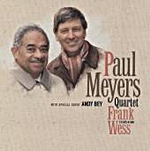
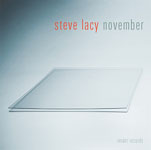

 Buy Now
Buy Now






